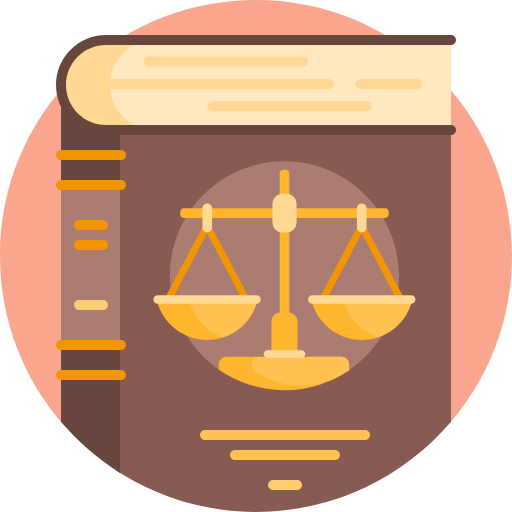Musk’s Security Clearance: Public Disclosure vs. Privacy

Court orders release of Elon Musk's security clearance info, citing his public disclosures. Ruling balances privacy, national security, and public's right to know. Impacts security clearance accountability.
On pages 16– 17 of the opinion, the court argues: Musk’s public statements “just enhance the public passion in disclosure.” DCSA itself yields that a person of the most obvious public interests is “the general public’s ability to comprehend DCSA’s operations or activities.” The listing of Musk’s protection clearances, along with any kind of possible conditions or waivers, can offer “significant understanding right into DCSA’s efficiency of that task” of continuous vetting.
The court located that Musk’s public admissions concerning substance abuse, NASA’s imposition of random drug testing, and his contacts with foreign leaders wear down the personal privacy interest that the Protection Counterintelligence and Safety Agency has actually claimed in replying to TheNew York Times’ request that the company release information regarding Musk’s clearances and gain access to. The judgment notes: “His blog posts on X on these topics have collectively gathered over 2 million sights. And it is indisputable that substance abuse and international get in touches with are two aspects DCSA considers when identifying whether to impose problems or waivers on a security clearance grant.”
Court Ruling on Musk’s Clearance
A federal judge’s judgment today might pull back the drape, nevertheless: a government judge purchased the Protection Counterintelligence and Safety Firm (DCSA) to launch some Privacy Act– protected information worrying Elon Musk’s security clearances, complying with a press by The New York Times that the agency release the information. The judgment crosses national protection, personal privacy law, and the general public’s right to recognize, and it turns in no little component on Musk’s own public disclosures.
DISCOURSE|A government court’s order to release some details of Musk’s protection clearances highlights exactly how public disclosures by top-level people can erode Privacy Act securities and questions regarding openness and responsibility in the clearance process.
In other words: the presence of problems or waivers might be revealed; the information around those disclosures may still warrant redaction if the government satisfies the court that a personal privacy injury exists.
Privacy Act and Security Clearances
The idea of that has a clearance and that doesn’t has traditionally been a private one. Those in the know don’t need to speculate excessive on who does or doesn’t have access– particular buildings and tasks in the Washington, D.C. city specifically have clear safety clearance needs– yet clearance eligibility has largely been taken into consideration an exclusive issue between the specific and the federal government. That’s an idea sustained by the Personal privacy Act.
This decision isn’t simply concerning Musk; it’s a notable moment in the legislation of oversight and security clearance accountability. The government frequently resists divulging safety and security clearance documents under both FOIA (Freedom of Details Act) and the Privacy Act, specifically when it asserts that disclosure of also very little details would certainly get into someone’s personal privacy.
His visibility (or a minimum of his readiness to talk publicly) concerning illegal drug usage, specifically in the last few years, with admissions regarding occasional ketamine usage, cannabis use, and NASA’s medicine testing needs, has actually stoked interest concerning how those admissions play into safety and security analyses.
Lindy Kyzer is a former Protection Division existing and private vice president at ClearanceJobs.com. She also works as vice-chair of the Security Plan Reform Council with the Knowledge and National Safety And Security Partnership.
There is a essential and excellent reason for that– the safety clearance process can be invasive, asking inquiries regarding criminal conduct, sexual habits, domestic partners, and family members, that you might be remiss to disclose if you assumed there was an opportunity they might become public fodder. The Personal Privacy Act (5 U.S.C. § 552a) is a statute that limits exactly how government firms collect, utilize, and disclose info regarding individuals. It provides individuals legal rights to accessibility, change, and understand just how their documents are used– including those sensitive security clearance documents.
DCSA has until a court due date to propose redactions. The judgment covers “the list of clearances, including whether waivers or problems exist” (or not). The federal government might still say some parts are much more delicate.
Over the years, there have actually been public reports, speculative coverage, and Musk’s very own remarks about his access and clearances. Musk has at times declared to hold Supersecret clearances and has held government placements that would have needed special accessibility.
He’s far from the only public number with protection clearance eligibility. And while public status is a part of the judgment, so is public disclosure– which is something even more safety clearance owners and applicants would be influenced by.
Elon Musk holds a press conference in the Oval Office with Head Of State Donald Trump to mark completion of the Tesla CEO’s tenure as an unique public servant supervising the united state DOGE Solution on Might 30, 2025.
Tom Brenner For The Washington Message through Getty Images
Supposition around Musk’s safety and security clearances and exactly how he’s able to maintain accessibility regardless of the problems brought up in the court choice are absolutely nothing new. The whole security clearance procedure isn’t concerning the individual being given gain access to, it’s concerning the federal government’s demand to both protect identified info and to carry out the kind of advanced research study and national security development called for.
Implications of the Court’s Decision
The court has successfully told DCSA that Musk’s very own public self-disclosures have actually eroded the guard of privacy he sought. It will be interesting to see what transpires next off, and what that may imply for the concept of both privacy and liability surrounding the safety and security clearance process. The choice is ultimately probably to be overruled by the greater court, yet choices like this chip at the executive branch’s authority and open broader inquiries regarding exactly how safety and security clearances are dealt with– in public and personal.
In the previous numerous months protection clearances have actually gone mainstream, maybe even more than ever before. High profile clearance abrogations have put a process that utilized to mostly sit in the darkness into the general public spotlight.
Due to the fact that Musk himself has put these subjects in the general public domain, the court ended that DCSA was unjustified in insisting that straightforward disclosure of whether a condition or waiver exists (or doesn’t) would certainly subject him to “humiliation or humiliation.” The court left room, nevertheless, for DCSA to make slim redactions in video camera (i.e. privately to the court) if any specific condition or waiver implicates Musk’s more sensitive personal privacy rate of interests.
Those in the know do not have to hypothesize also much on that does or does not have accessibility– specific buildings and tasks in the Washington, D.C. metro in certain have clear security clearance requirements– however clearance qualification has actually mainly been taken into consideration an exclusive matter in between the private and the government. The court located that Musk’s public admissions pertaining to medicine use, NASA’s imposition of random drug testing, and his calls with foreign leaders erode the privacy rate of interest that the Defense Counterintelligence and Security Agency has asserted in responding to TheNew York Times’ demand that the company release information concerning Musk’s clearances and access. The entire protection clearance procedure isn’t regarding the person being provided access, it’s regarding the government’s need to both safeguard categorized info and to carry out the kind of innovative research and national safety and security advancement needed. It also develops even more threats for present safety and security clearance holders that may reveal info about subjects that might be considered clearance red flags. If DCSA reveals Musk’s clearance details on the premises that he has actually previously talked concerning his clearance, the door fractures open for other individuals to have their eligibility and accessibility inspected for something as basic as a social blog post.
Privacy vs. Public Interest
It also produces more threats for present safety clearance owners that might disclose details regarding subjects that may be taken into consideration clearance red flags. The court ruling highlights that what you publish online might chip away at your expectations of privacy surrounding your clearance status.
The precedential impact is the crucial one right here, and worth complying with as the situation proceeds. If upheld, this choice might be invoked in future cases including somebodies, protection clearances, or executive branch accountability. It may affect exactly how aggressively companies assert personal privacy passions, particularly when the subject has currently commented publicly on overlapping subjects. If DCSA divulges Musk’s clearance information on the grounds that he has actually formerly discussed his clearance, the door fractures open for various other individuals to have their qualification and access looked at for something as easy as a social post.
Future Implications
Among its fundamental principles is that an agency needs to not release documents concerning an individual that are “about” them, without that person’s approval, unless a statutory exemption or exception applies. This is why DCSA has actually been rejecting press ask for details about Musk’s safety and security clearance. Musk might be a celeb (not like us), yet he’s also a citizen, and he keeps his Personal privacy Act defense.
While the Personal privacy Act has long worked as a protection for clearance candidates, that security is not absolute– at the very least when it involves somebodies. Courts have actually recognized that when a private holds (or insurance claims) a top-level or public placement, and specifically when nationwide protection or federal government features are entailed, the equilibrium may turn towards disclosure if a solid public passion exists.
In the context of protection clearances, firms usually insist that disclosure (even very little) would bring about a baseless intrusion of privacy. They declare people might be embarrassed or that sensitive personal or national security interests would endure.
1 CEO Elon Musk2 DCSA
3 national security
4 Privacy Act
5 public disclosure
6 security clearance
« Government Shutdown: Federal Workers Face Pay DelaysTrump’s NASA Union Battle: Collective Bargaining Rights Clash »
